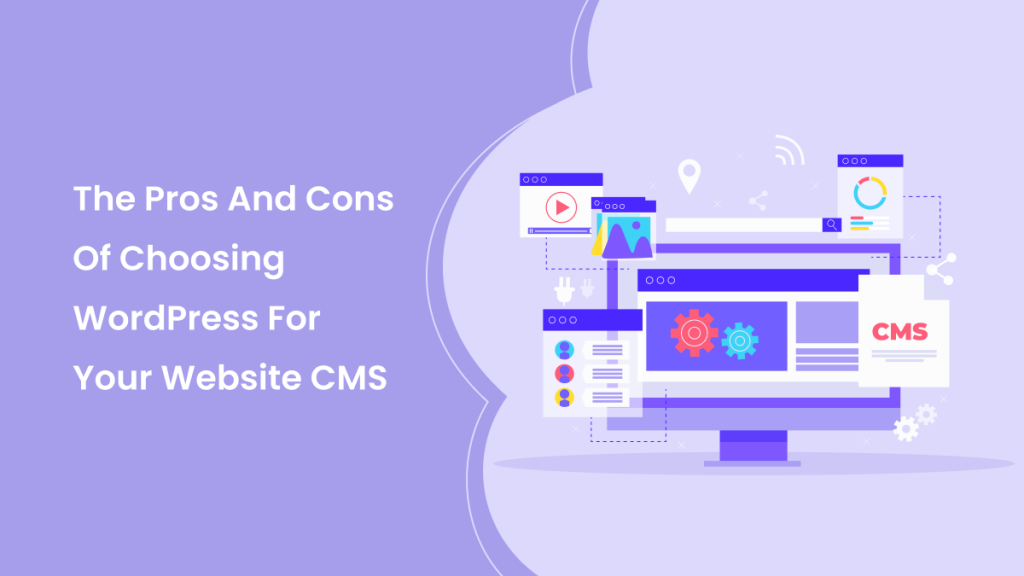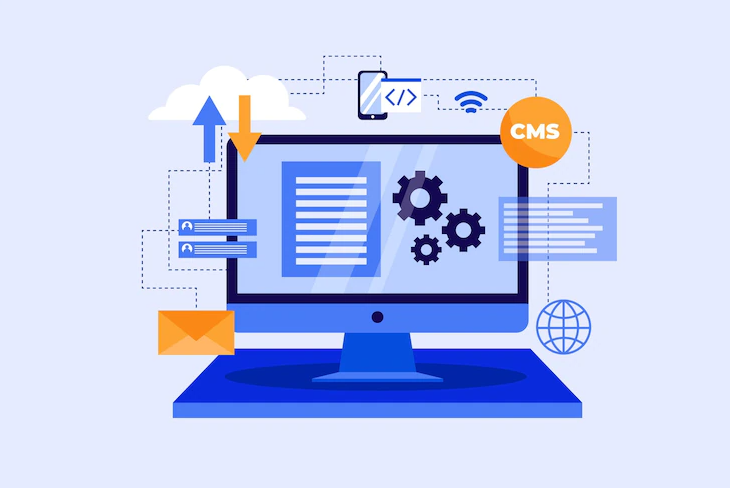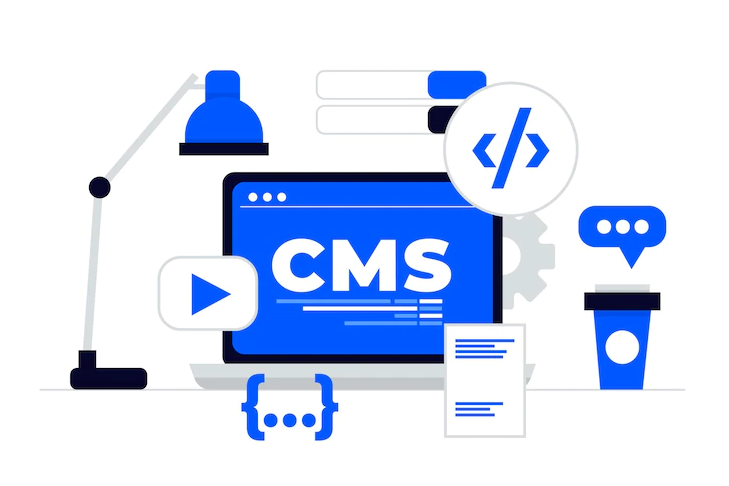
Hiring a development company might not always be possible when you want to start a new business, blog, ecommerce, or any other such type of website. For example, there might be issues with the financial budget, lack of technical knowledge, and so on. That’s where the content management system or CMS comes into play. It is a tool that can be used to build a website based on a template, post, and edit content, manage all the elements on the UI, control backend and administrative operations, and store the content in the database.
Although you can build a website with several types of CMS, WordPress is the most chosen. According to a report, WordPress powers approximately 43% of websites currently active on the internet. So, using this CMS platform might sound tempting but concluding immediately might not help you. In other words, you need to know every aspect of WordPress to make a well-informed decision.
How can WordPress help you with website CMS?

Customizable themes
One of the primary benefits of opting for WordPress CMS is the presence of fantastic themes, most of which can be customized. This is one of the primary reasons why this CMS platform is popular for building the website as you can get different templates for various businesses, like food and restaurant, coffee shop, sports and education, ecommerce, podcast, and many more.
Usually, you can easily customize each component’s fonts, styles, colors, alignments, and locations. Most of these themes are visually appealing, thanks to vibrant components, draggable sliders, the perfect balance between negative and positive space, and aligned with the business needs.
Abundant plugins
Apart from the availability of so many themes, there are several plugins on WordPress. These plugins can be customized according to your business requirements and then integrated with the website. It means you can easily change the features explained in the plugins and then ensure they are perfectly aligned with the website designed initially.
Cost-effective CMS
Another significant benefit of opting for WordPress CMS is its cost-effectiveness. Usually, when we consider other content management systems, you need to buy almost everything, from the themes to the plugins, domain names, and many more. As a result, the cost involved in website building on such platforms is relatively high, which makes no meaning because you can hire a full-fledged IT company by adding a couple more bucks.
On the contrary, here, you only need to buy the domain name and hosting server subscription. Other than this, most themes & plugins are available for free.
Simple backend management
One of the significant advantages of WordPress is its backend interface. Managing the administrative functions, uploading and editing the content, and so on are pretty easy to handle. If you see the backend interface for uploading or writing the content displayed on the website, you will find its resemblances with Microsoft Word.
There will be several font and style options and different blocks for headers, titles, content body, and so on. Since there are different types of blocks available, you can easily upload the content in their respective positions, like subheads with H2 and H3 tags, bullet points, etc.
Frequent core updates
WordPress has come a long way, thanks to the frequent updates found in its core source codes. Due to these updates, the bugs and loopholes present in the existing version can be eliminated with ease. Therefore, you won’t have to worry about anything, especially regarding page slowness and inaccessibility for some themes and plugins.
Furthermore, you can easily update the version you are using, and all the new and modified features will be migrated to the new environment.
Open-source
Another cause for which WordPress is used abundantly is its open-source nature. In other words, it has a built-in forum where you can meet with developers, marketers, administrators, and many other professionals. If you have any questions or need clarification about a new change introduced to the source code, you can refer to these professionals and ask them.
SEO-friendly
Every business needs to ensure the website is SEO-friendly and meets all the ranking factors. For instance, you must maintain appropriate keyword density with a variety and manageable form. Then, when you upload the content with keywords integrated into the content editor boxes, you will see the keyword density and whether it is optimized.
Similarly, you can also use the content editor to check Yoast readability score, like the passive sentences, frequency and percentage of transition words in the content, sentence length, and many more. Therefore, making your content readable and user-friendly will be fine now.
Scalable and flexible
WordPress is one of the major CMS platforms for developing a website and managing all its content. It is scalable and flexible, so you can easily change the formats or make edits per your requirement. There is no need to act on the core engine that enables WordPress to act as the CMS platform.
For instance, if you choose template 1 for your eCommerce business at the beginning and it isn’t working correctly, you can easily change the theme to ensure all the design elements and the template are aligned with your business requirements.
What are the limitations of using WordPress CMS?

Although there are so many different advantages of using WordPress CMS, there are certain limitations also. Let’s have a look at them:
- First and foremost, you will need many plugins and integrate them with the main administrative dashboard to extend the website’s features. Therefore, with these plugins, you might be able to make the website more functional and intuitive. For instance, if you want to access Yoast SEO, you must incorporate this plugin.
- Although the speed page is optimized, there might be some issues because the hosting server might not handle a considerable load simultaneously. For example, if the hosting server encounters a colossal load and no balancing algorithm, all the websites uploaded on the server will slow down. This might increase the bounce rate, and you can lose a potential section of your customers or target audience.
- The security features that WordPress still needs to get an advanced form. This is why several security vulnerabilities exist, including hacking and malware releases. As a result, you must get the SSL certification and even incorporate military-grade 256-bit encryption protocol.
- If there is any issue with the hosting server or new codes and configurations are deployed, all the websites will be taken down without prior notice or notification. Therefore, you could only know when your website has been taken down from the server, which can impact your business considerably.
- You have to do and manage everything all by yourself. Everything should be done from your end, from uploading and editing the content to customizing the themes and plugins. Your project budget can significantly increase if you want to hire a WordPress professional.
Conclusion
This article discusses how WordPress can help improve website functions and manage all the content uploaded on the server. We have also discussed your challenges with this content management system. So, with this guide, deciding will be easy for you.
About the author: Harikrishna Kundariya, a marketer, developer, IoT, ChatBot & Blockchain savvy, designer, co-founder, Director of eSparkBiz Technologies @Software Development Company. His 12+ experience enables him to provide digital solutions to new start-ups based on IoT and ChatBot.

